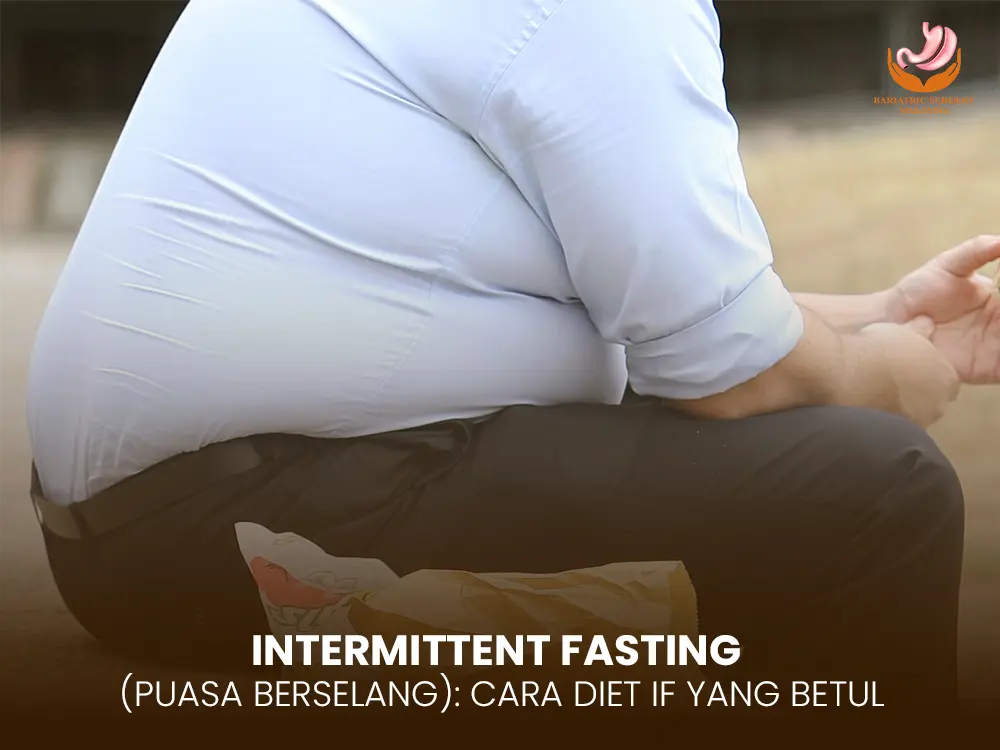Obesity is more than a cosmetic concern—it’s a chronic health issue that affects millions worldwide, including a growing number in Malaysia. Fortunately, obesity treatment Malaysia options have evolved significantly in recent years, offering renewed hope to those battling weight issues. From medical therapies to advanced surgical procedures, Malaysia presents a wealth of opportunities for individuals seeking sustainable weight loss solutions.
In this guide, we’ll explore the most powerful and evidence-based obesity treatment Malaysia has to offer. Whether you’re exploring bariatric surgery or looking for non-invasive alternatives, you’ll find expert guidance and helpful insights tailored to your needs.
Understanding Obesity in Malaysia
Malaysia has one of the highest obesity rates in Southeast Asia. Lifestyle shifts, dietary changes, and sedentary habits have contributed to this surge. According to the National Health and Morbidity Survey, more than half of Malaysian adults are overweight or obese. This worrying trend has turned obesity treatment Malaysia into a national priority.
Why Early Obesity Treatment Malaysia is Essential
Ignoring obesity increases the risk of developing serious health conditions like Type 2 diabetes, heart disease, and even certain cancers. Early intervention ensures a better quality of life, enhances life expectancy, and reduces the burden on the healthcare system.

Popular Medical Options for Obesity Treatment Malaysia
Obesity is a growing health concern in Malaysia, and while lifestyle changes like healthy eating and regular exercise remain the foundation of treatment, many individuals require additional medical interventions to achieve sustainable results. Fortunately, Malaysia has become a hub for modern obesity management, offering a wide range of evidence-based treatments tailored to individual needs. These medical options go beyond short-term fixes, focusing instead on long-lasting health improvements.
Prescription Medications for Weight Loss
Malaysia provides access to several FDA-approved weight loss medications that are prescribed under strict medical supervision. These medications are not one-size-fits-all solutions; instead, they are carefully tailored to each patient’s health profile, lifestyle, and weight loss goals.
Common categories of prescription medications available in Malaysia include:
Appetite suppressants – These work by influencing the brain’s hunger centers, helping patients feel full sooner and reducing overall calorie intake.
Fat absorption inhibitors – These medications block the absorption of fat from food, lowering calorie intake and promoting gradual weight reduction.
Metabolic boosters – In some cases, medications may help regulate metabolism, especially in individuals with obesity-related conditions such as type 2 diabetes.
When prescribed responsibly by specialists, these medications can lead to significant weight loss results—particularly when combined with diet and exercise modifications. Patients are typically monitored through regular follow-ups to ensure safety, track progress, and make any necessary adjustments to the treatment plan.
It’s important to note that medications are not magic pills. They work best when integrated into a structured weight loss program and are usually recommended for individuals with a higher Body Mass Index (BMI) or those with obesity-related health conditions such as hypertension, sleep apnea, or prediabetes.
Non-Surgical Medical Therapies
For those who prefer non-invasive options, Malaysia offers a variety of non-surgical obesity treatments that address both physical and psychological aspects of weight management. Many of these services are provided by multi-disciplinary teams, including endocrinologists, dietitians, psychologists, and fitness experts.
Some popular non-surgical therapies in Malaysia include:
Nutrition and Diet Counseling – Registered dietitians create tailored meal plans that focus on balanced nutrition, portion control, and healthier food choices. Patients learn how to make sustainable changes instead of relying on temporary diets.
Exercise and Fitness Programs – Clinics often collaborate with physiotherapists or certified trainers to design safe and effective exercise regimens suitable for each patient’s fitness level and health conditions.
Behavioral Therapy – Addressing emotional eating, stress management, and unhealthy food habits is critical in long-term obesity management. Cognitive-behavioral therapy (CBT) is frequently used to help patients develop healthier coping mechanisms.
Meal Replacement Programs – Some clinics provide carefully designed low-calorie meal replacements that make calorie control easier while ensuring adequate nutrition.
Medical Monitoring and Support Groups – Regular follow-ups, progress tracking, and peer support help patients stay motivated and accountable throughout their journey.
Unlike quick-fix diets or extreme exercise plans, these therapies are designed to foster long-term lifestyle adjustments. The ultimate goal is to help patients not just lose weight, but also improve their overall health by reducing the risks of obesity-related diseases such as diabetes, high blood pressure, heart disease, and joint problems.
Integrating Both Options for Better Results
In many cases, doctors in Malaysia recommend combining prescription medications with non-surgical therapies. For example, a patient may begin with appetite-suppressing medication while simultaneously working with a dietitian and fitness trainer. This comprehensive approach increases the likelihood of sustainable weight loss while addressing both biological and behavioral factors.
The availability of these medical options in Malaysia makes obesity treatment more accessible and effective, especially for individuals who want alternatives to surgery. With proper guidance, patients can achieve meaningful weight loss while also improving their quality of life.
Bariatric Surgery: A Transformative Obesity Treatment Malaysia Relies On
Types of Bariatric Surgery Available
Malaysia has emerged as a hub for bariatric surgery in Southeast Asia. Common types include:
- Gastric Sleeve Surgery
- Gastric Bypass
- Adjustable Gastric Banding
- Intragastric Balloon
These procedures reduce food intake and/or nutrient absorption, helping patients achieve significant weight loss.
Who is Eligible?
Most clinics follow international guidelines, recommending surgery for individuals with a BMI over 40 or a BMI over 35 with comorbid conditions like diabetes or hypertension.
Recovery and Aftercare
Post-operative care includes nutritional counseling, psychological support, and regular follow-ups. Malaysian hospitals provide world-class recovery services that help patients transition smoothly.
Costs of Obesity Treatment Malaysia
One of the biggest advantages of seeking obesity treatment Malaysia offers is affordability. Bariatric surgeries, for instance, can range between RM 20,000 to RM 40,000, which is significantly lower than in Western countries. Additionally, most clinics offer flexible payment plans and insurance options.
Success Stories from Malaysia
Thousands of Malaysians have successfully reversed obesity with these treatments. Many report losing over 50% of their excess weight within a year of undergoing surgery, with improved energy levels and fewer comorbidities.
Obesity Treatment Malaysia and Mental Health Support
Mental well-being is a crucial part of obesity management. Malaysian clinics increasingly offer counseling and psychological support alongside physical treatments to address issues like binge eating and body image concerns.
Holistic Weight Loss Programs in Malaysia
Holistic programs combine medical treatments with acupuncture, yoga, herbal medicine, and traditional Malay healing therapies. These integrative methods appeal to patients seeking a more natural approach to obesity treatment Malaysia.
Government Initiatives for Obesity Management
The Malaysian government has launched initiatives like the National Plan of Action for Nutrition to promote healthy eating and increase physical activity. Clinics often align their treatment protocols with these national guidelines.
Insurance Coverage for Obesity Treatment Malaysia
While not all insurance plans cover bariatric surgery, an increasing number of Malaysian insurers now offer obesity-related coverage due to rising demand. It’s crucial to check with your provider beforehand.
Technology-Driven Weight Loss Options
Advanced technologies like AI-powered diet apps, virtual fitness trainers, and wearable trackers are being used by top clinics to enhance weight loss outcomes.
Common Myths About Obesity Treatment Malaysia
Myth: Surgery is just a shortcut to weight loss.
Fact: Many people mistakenly believe that bariatric surgery is an “easy way out.” In reality, it is a medically approved treatment for individuals struggling with severe obesity who haven’t succeeded with traditional methods. Surgery is only the beginning of the journey. Patients must commit to lifelong lifestyle changes, including healthy eating, regular exercise, and consistent follow-up care to maintain results. Without discipline, weight regain is possible even after surgery.
Myth: Medications for obesity are dangerous.
Fact: While concerns about side effects are understandable, modern weight loss medications prescribed in Malaysia are carefully regulated and backed by clinical studies. When prescribed and monitored by a qualified healthcare professional, these medications can safely aid weight loss and help manage related conditions like diabetes and hypertension. The risks of untreated obesity often outweigh the potential side effects of properly managed medication.
Myth: Obesity treatment in Malaysia is only for the wealthy.
Fact: Malaysia is known for offering cost-effective healthcare compared to many Western countries. Options for obesity treatment, including counseling, diet plans, exercise programs, medications, and surgery, are available at different price points. With medical tourism on the rise, international patients often find treatments here more affordable without compromising on quality.
Myth: Once treated, obesity never comes back.
Fact: Obesity is a chronic condition, and treatment does not mean a permanent cure. Whether through surgery, medication, or lifestyle management, long-term success depends on continuous commitment. Patients who stay engaged in follow-up care and maintain healthy habits are more likely to sustain their weight loss.
Myth: Natural remedies work better than medical treatments.
Fact: While herbal teas, detox drinks, and traditional methods are popular, there is limited scientific evidence to support their effectiveness in treating obesity. Professional medical treatments in Malaysia are evidence-based, safe, and designed to provide long-term results, unlike quick-fix remedies that may not address the root cause of obesity.
Myth: Exercise alone is enough to cure obesity.
Fact: Regular physical activity plays an important role in weight management, but severe obesity often requires a more comprehensive approach. Combining exercise with dietary changes, behavioral therapy, medication, or surgery provides the best outcomes. In Malaysia, weight management programs typically include a combination of these strategies for long-lasting success.
Frequently Asked Questions FAQs
1. What is the most effective obesity treatment Malaysia?
Bariatric surgery is widely considered the most effective treatment for long-term weight loss, especially when combined with lifestyle modifications.
2. Is obesity treatment Malaysia affordable?
Yes, treatments in Malaysia are cost-effective compared to many other countries, especially for surgical options.
3. Can I get insurance coverage for obesity treatment Malaysia?
Some insurers do offer coverage, especially for medically necessary procedures like bariatric surgery. It depends on the specific policy.
4. Are there non-surgical options available in Malaysia?
Absolutely. Options include medications, meal plans, counseling, and exercise programs.
5. How soon can I see results from obesity treatment in Malaysia?
Results vary, but many patients notice significant improvements within 3–6 months of beginning treatment.
6. Is follow-up care important after bariatric surgery?
Yes, consistent follow-up ensures long-term success and addresses any complications early.
7. Which hospitals in Malaysia are best for obesity treatment?
Malaysia has several reputable hospitals and weight management centers specializing in obesity treatment, particularly in Kuala Lumpur, Penang, and Johor Bahru. Many are accredited and have internationally trained specialists.
8. Do I need to qualify for bariatric surgery in Malaysia?
Yes, patients usually need to meet specific medical criteria such as a Body Mass Index (BMI) of 35 or higher (with health conditions) or 40 and above. A medical evaluation is required before approval.
9. Is obesity treatment in Malaysia safe?
Yes, treatments are performed by highly trained specialists in accredited facilities. Malaysia is known for strict medical standards, making procedures safe and reliable.
10. Can international patients seek obesity treatment in Malaysia?
Definitely. Malaysia is a top destination for medical tourism, offering high-quality obesity treatment at affordable rates for international patients.
11. What lifestyle changes are recommended after obesity treatment in Malaysia?
Patients are encouraged to adopt healthier eating habits, engage in regular physical activity, and attend follow-up consultations for sustainable long-term results.
12. Are obesity medications available in Malaysia?
Yes, doctors may prescribe FDA-approved weight loss medications as part of a comprehensive treatment plan, often combined with dietary and lifestyle changes.
13. How long do I need to stay in Malaysia for obesity surgery?
Most patients stay between 7 to 14 days to allow for pre-surgery assessments, surgery, and initial recovery before returning home.
14. Will I regain weight after obesity treatment Malaysia?
Sustained results depend on following the recommended lifestyle modifications. With proper guidance and commitment, long-term weight loss is achievable.


